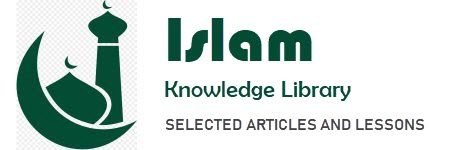
Introduction
All praise is due to Allah, Subhanahu wa ta’ala, the Sustainer
of the worlds. I pray that His peace and blessings descend upon
the Most Noble of all the Messengers of Allah, Muhammad
Bin Abdullah, sallallahu ‘Alaihi wa salam, his family and com-
panions.
Whenever the orbit turns and another month of Ramadan ap-
proaches, happiness and joy return to the Ummah, for with it
come two of the greatest gifts of Allah, namely the fasting
month of Ramadan and the celebration of the revelation of Al
Qur’an.
Fasting is an eloquent expression of Allah, leading this Ummah
to the gates of His mercy, a key to unlocking the mysteries of
His nearness. While humanity is divided on the basic elements
of the notion of the Creator, a Muslim is far ahead of the rest of
the world in this field and travelling at the speed of light to the
neighborhood of the Throne of the Creator. Where else would
you find a discipline that provides direct communication be-
tween the servant the Served? Where else would you have an
act of ‘Ebadah that enriches self-worth, self-strength, self-
rebuilding, self discipline and control? Where else would one
find a discipline that moves the believer from unauthentic to
authentic as the institution of fasting? Where else would you
find a discipline that enriches the vital needs of human being,
both physical and spiritual? Praise be to Allah!
The institution of Fasting is a unique form of worship pre-
scribed as part of an overall system of Islam. Its uniqueness
mirrors the uniqueness of the human being, a creature of physi-
cal and spiritual parts whose excellence depends on the right
proportion of these two parts. Too much of the physical mate-
rial will ruin man, and too much of the spiritual will, too. Fast-
ing orients the observer to the art of balancing the spiritual es-
sentials with physical needs, a vivid proof that there is in all of
us the will power, a pivotal element that controls our actions.
This will be needed to help us curb the animalistic tendencies
originating from the stomach, in full. It makes us forget about
our beginning, it awakens the mind and kindles clear thinking
and consciousness of Allah. Fasting is the sobering of a mind
and reconstruction of our spiritual faculties.
Fasting has instilled in food and beverages a religious legiti-
macy, as its amount and the hour taken are expressed in terms
of deen, and chewing and sipping at proper intervals equals
praise and glorification of Allah. It makes the individual ready
and primed to meet the Creator. You see, it has never been easy
trying to gain access to the nearness of Allah, SWT, due to
several considerable obstacles obstructing our view, mainly
ignorance, multiple images or double vision, passive will
power, time, place, culture, upbringing and prejudice. Fortu-
nately, the gates that lead to the nearness of Allah swing both
ways with the help of fasting.
Fasting cures the double vision that many people suffer in the
realm of spirituality. The inauguration of Fasting eliminates the
middleman, a spiritual broker, an insidious opinion held by
some that a believer can only gain access to nearness to Allah
through another, who is endowed with superpowers to reach
Allah more easily. No, indeed, Allah is ineffable yet approach-
able. It is the sum and scope of Allah’s ‘Ebadah that clarifies all
the acts of ‘Ebadah including Salat. Fasting renders this mag-
nificent and beautiful idea of Tawhid of Allah, there being no
deity but Allah, and Muhammad being His Messenger, into an
effective power charge, a potent and effective concept for fo-
cusing and organizing one’s world view and epitomizing the
religious and psychological orientation of the believer.
On the other hand, Ramadan was the host month for the inau-
guration of the final revelation, Al-Qur’an Al-‘Azeem. Allah
(SWT) bestowed this book upon humanity through His Mes-
senger Muhammad bin “Abdullah. The reading of Al-Qur’an
has been mandated by its Author, Allah himself, for the believ-
ers all the time, more so in the month of Ramadan, as this is
reported from the Messenger. Muslims past and present have
always mixed fasting with reading of Al-Qur’an. Perhaps the
reason for this is that one of the objectives of Ibis (shaytan) is
to hinder the believer from reading Al-Qur’an. But during
Ramadan Shaytan himself is hindered from tempting the be-
liever- for Al-Qur’an avails the reader a cherished privilege of
directly conversing with the Creator of the Universe.
Thus, I included this vital discussion to help the reader with the
rules that are essential for reading and reciting Al-Qur’an. In-
deed, the spiritual training during the month of Ramadan can
not be complete without a great deal of reading of the Book of
Allah. This divine Book deals with the questions of total life:
creed, moral instructions, administration of warnings, giving
good news, lessons from historical events, interpretation of the
material and natural phenomenon, inviting humanity to their
Maker, and admonishing the unbelievers. Al-Qur’an is an ex-
position on the spiritual as well as physical doctrine in which
every verse and sentence has an intimate bearing on the other
verse and sentence. Ramadan affords a believer an opportunity
to cross-reference his entire life with the reading of Al-Qur’an;
and anyone who observes this practice during Ramadan has a
better chance of graduating to a higher level of faith.
The third pillar of Islam, Zakat, is also discussed briefly and
concisely in order to illustrate the basic Fiqh on Alms-giving.
This is an opportunity that should not be lost on eligible Zakat
payers: to mix Ramadan with mandatory gift giving so as to
carry on the commands of Allah (SWT) and to combat greed of
an affluent person and to help needy meet his essential needs,
and thus build a bond of strong relationship in the Ummah.
Therefore, ESSENTIALS of RAMADAN, THE FASTING
MONTHs a summary of the fundamental rules and laws on
the Fiqh of Fasting, based on Al-Qur’an and the Sunnah of the
Messenger (saas) to assist the reader in observing this special
‘Ebadah of worship, as well as the traditionally related duties
and obligations as mentioned earlier, Zakat and the reading of
Al-Qur’an. All praise be to Allah the Most High in the begin-
ning and in the end.
